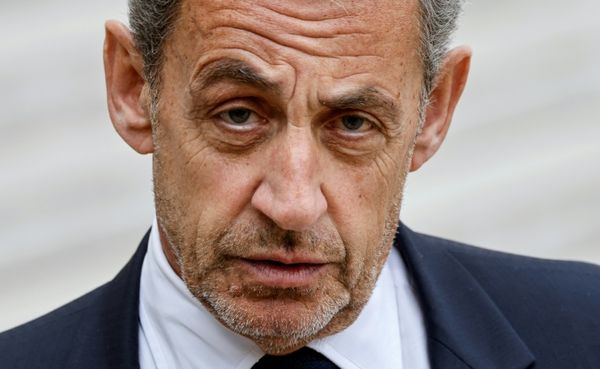
Poor Woolies — the ultra-profitable Australian supermarket giant is copping it on all fronts this week.
First it was the critique from Opposition Leader Peter Dutton, who blasted the Woolworths group as un-Australian for refusing to stock Australia Day merchandise, and went one further by urging patriotic customers to boycott them. And now the Australian Competition and Consumer Commission (ACCC) is launching an investigation into price-gouging and competition in the supermarket sector.
Chief executive Brad Banducci went on an explanation tour ahead of January 26, hitting most of the major outlets and news shows to talk about the merch ban, but even his heartfelt clarification that the company had only profit in mind — not any hatred of Australia Day — wasn’t enough to pacify Dutton and his supporters.
On Thursday, as Crikey was chasing Woolworths for some additional info about the Australia Day backlash, the Woolies media team was so busy responding to the ACCC news they barely had time to engage.
But Crikey was helpfully pointed towards Banducci’s other interviews this week, and from them it’s clear the Australia Day backlash has been severe — not least for employees.
“I wouldn’t want to attribute it directly to [Dutton’s] statements, but it would be fair to say that the number of acts of violence in our stores has gone up by 50% in the last couple of weeks since people were aware of our decisions,” he told the ABC’s 7.30 program on Wednesday.
“So, that’s very worrisome. We already have far too many, post-COVID. And again, the reason I’m here is to say disagree with Woolies if you like, disagree with me if you like, but treat our team with the respect we hope they treat you with.”
Frontline staff taking the brunt of customer frustrations over corporate or regulatory decisions — such as mask mandates and QR check-ins during the coronavirus pandemic — is nothing new. The retail union Shop, Distributive and Allied Employees Association (SDA) told Crikey surveys of members had shown a marked increase in staff abuse over the past two years.
“Unfortunately, attacks on retail workers have escalated from a problem to an epidemic. A survey late last year of SDA members revealed customer violence has jumped by 50% in just two years. There have been stabbings, axe attacks and bashings in major retail outlets,” Gerard Dwyer, national secretary of the SDA, told Crikey. “Major retailers have joined the SDA in pressing all states and territories to criminalise assault on retail workers following the lead of South Australia and NSW.”
Into this mix comes the media’s “Woolies goes woke” coverage along with Dutton’s calls for a boycott. In the lead-up to January 26, several Woolworths stores in Queensland have been vandalised in incidents believed to be linked to the merch furore, Crikey understands.
Crikey approached Kmart (which quietly withdrew Australia Day merch last year) and Aldi (which announced the move in the days after the Woolworths group, but have thus far not been included in Dutton’s boycott call) to see if their stores had experienced any spike in vandalism incidents or confrontations with staff, but they didn’t respond before deadline.
Crikey also sent questions to Dutton’s office about whether there were any concerns about a potential correlation between his talking points and their effects on retail workers, but did not get a response.
However, Dutton fronted reporters on Thursday to criticise Labor’s stage three tax reform plans and socked it to Banducci again: “His job is to bring grocery prices down. His job is not to tell Australians whether they can celebrate Australia Day.”
In his earlier spray at Woolies, Dutton urged people upset with the merch move to boycott the chain. It’s interesting to ponder what such a boycott would look like for customers living in an effective grocery store duopoly. There are large swaths of inner Sydney, for example, where the other half of the duopoly, Coles, is barely represented. Will culture warriors get in their cars to drive to Coles, which posted earnings of $1.1 billion last year, in order to spite Woolworths, which posted $1.62 billion in earnings?
With that market concentration in mind, and coupled with the intense focus on the cost-of-living crisis at the moment, the ACCC’s one-year probe means Woolworths has bigger worries than whether it should be stocking the green and gold.
Banducci, in yet another of his public statements this week, said he welcomed the inquiry, which was ordered by the prime minister in an announcement on Thursday and first reported last weekend by The Saturday Paper.
“We know many Australian families are doing it tough and looking for relief at the checkout,” Banducci said on Thursday. “Food inflation has continued to moderate in recent months and we expect this to continue throughout 2024.”







